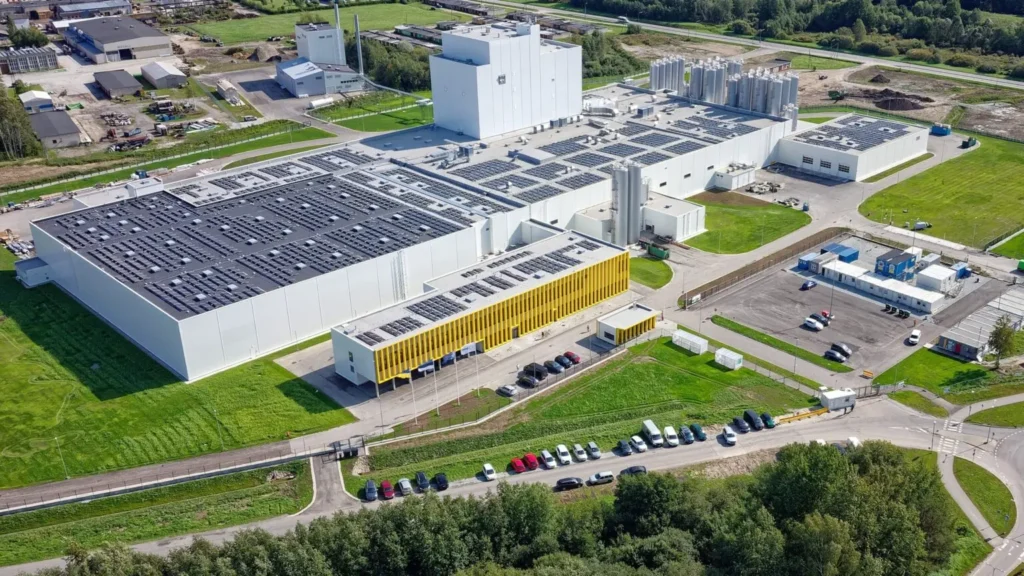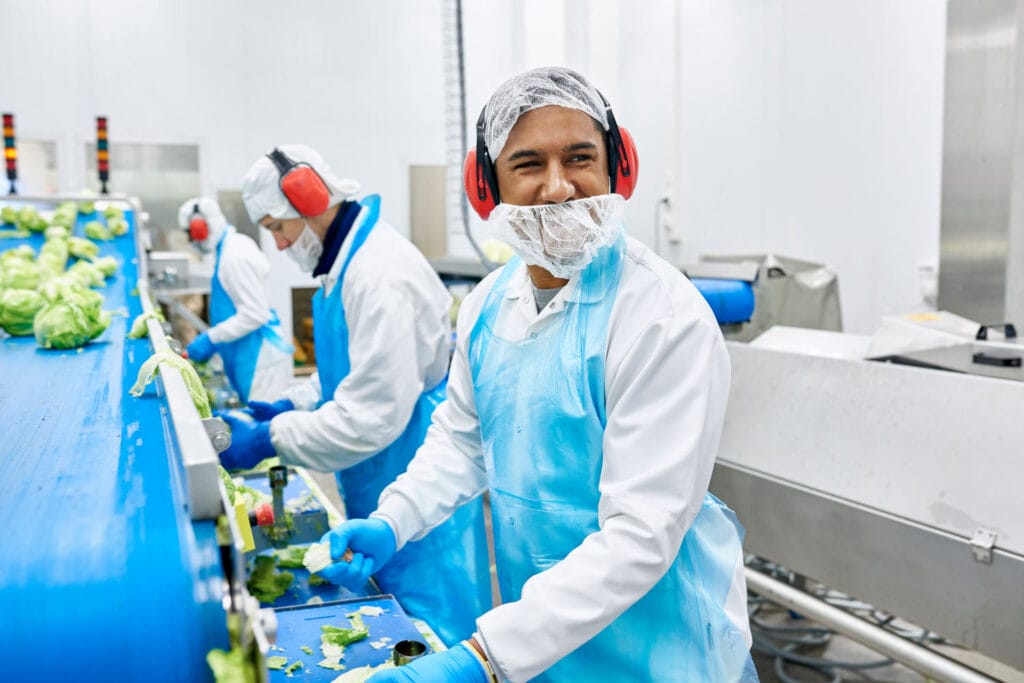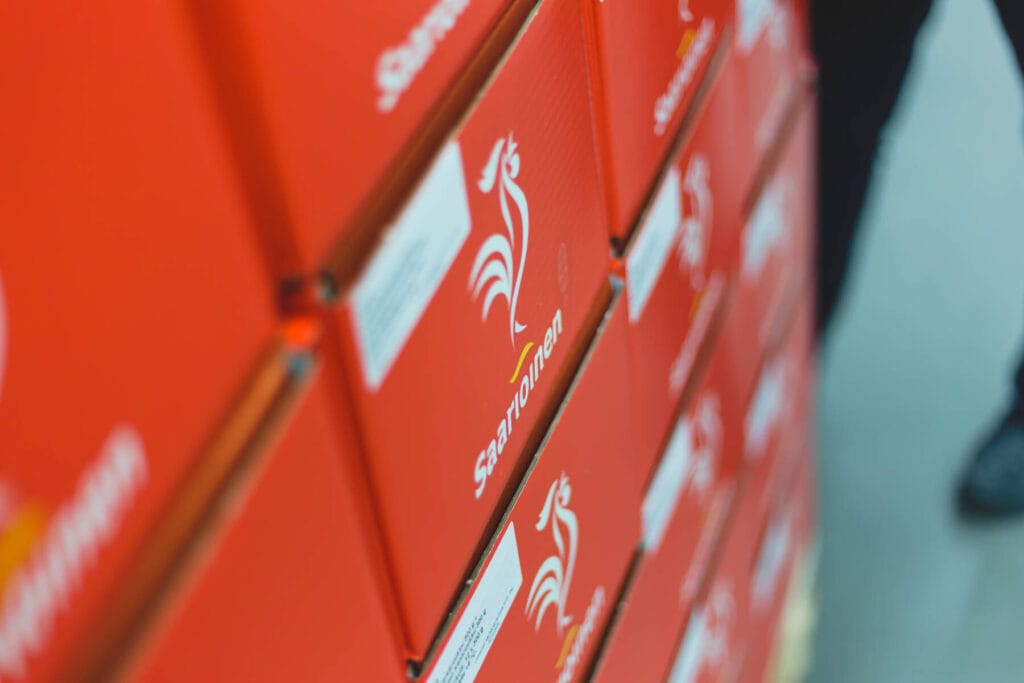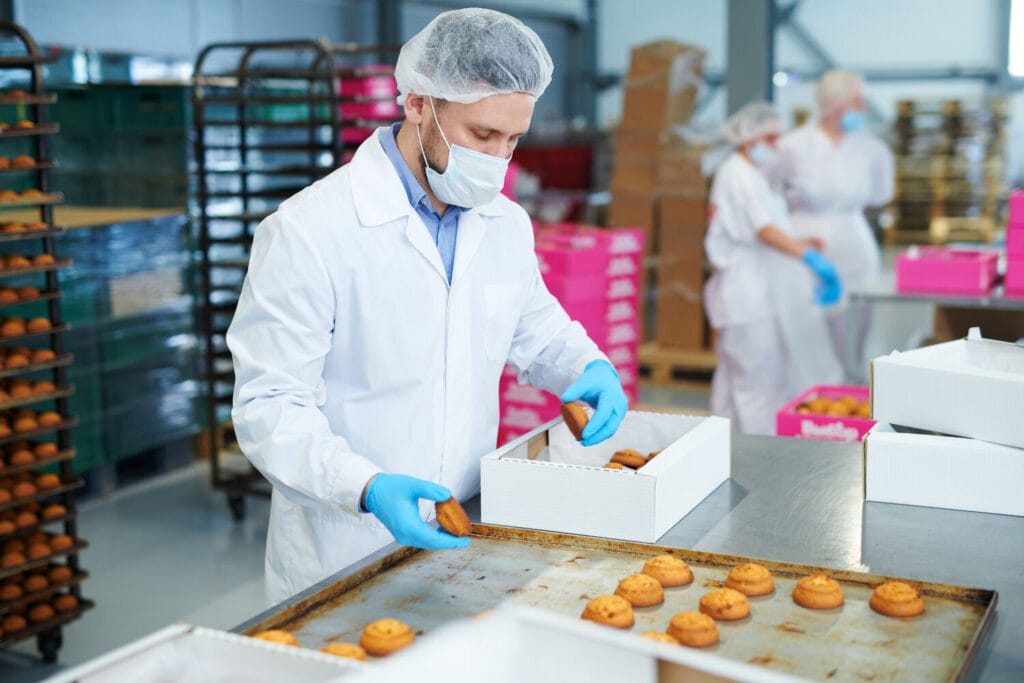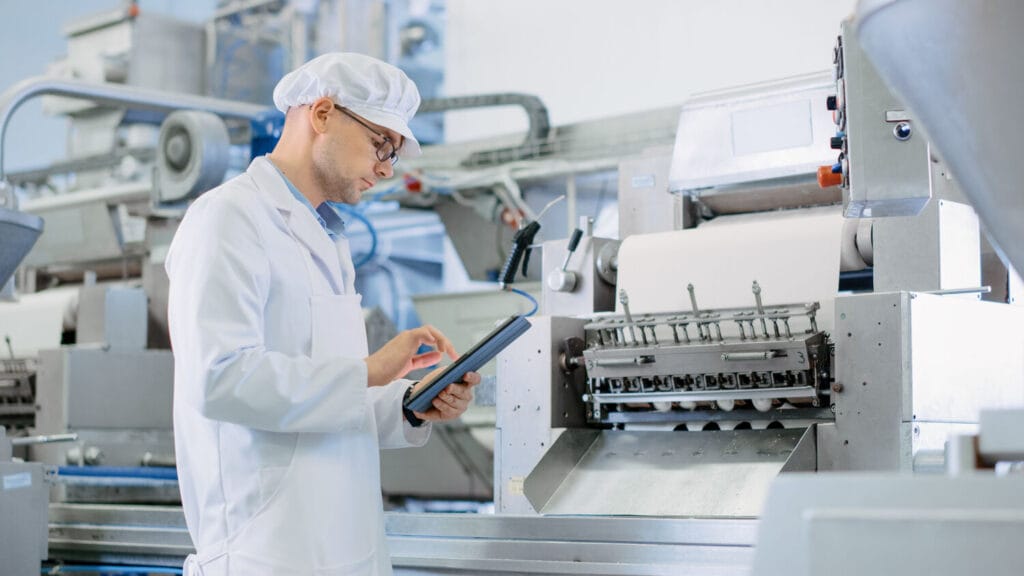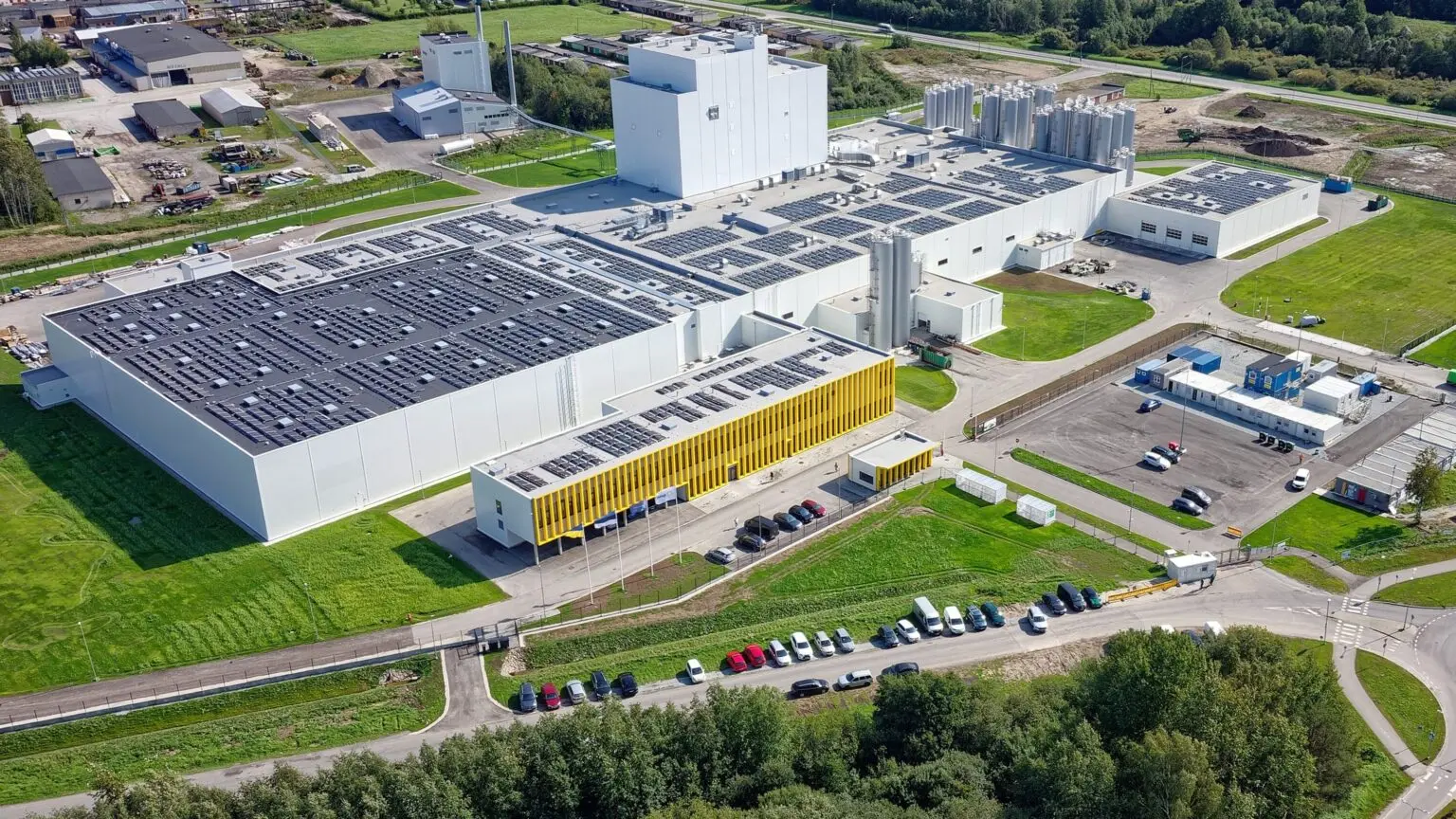
E-piim cheese production decrease waste with textiles
To Kaisa Ringmäe, the Quality Director of the E-piim cheese and butter production plant, it is not a surprise that the E-piim team decided to use the Lindström service in its brand-new dairy plant at Paide.
All the food manufacturers in Estonia know Lindström and the vast majority use the textile rental service they offer. Lindström also takes care of the workwear and mats of other manufacturing plants of E-piim, which is why the expansion of cooperation at the new dairy plant was a natural continuation of a well-functioning partnership.
Kaisa Ringmäe, Quality Director
With its innovative, environmentally conscious solutions in the Estonian industrial landscape, the Paide dairy plant decided not to copy the service package of other E-piim productions. Rather, they designed their own unique concept.
“We have made the work processes of our plant as sustainable as possible in every work section. When choosing workwear and other textile products, we decided to follow the same principle. We started to explore how we can reduce the amount of waste and textiles in circulation. This is how we came up with a possible solution to reduce our environmental impact,” Ringmäe rejoices.
The E-piim plant reduced their clothing by a fifth
We took the decision to transition to non-personalized workwear in the Paide dairy plant. So far, every employee has had their own set of workwear with their name. The new production uses all sizes of commonly used workwear that are constantly in use. This way, the garments no longer stand in the wardrobe outside of their working time.
Based on an agreed schedule, Lindström takes the worn clothes to wash. At the same time, they bring clean clothes back to the closets at the right time. Less textiles means less waste at one point. Additionally, this solution also provides considerable financial savings.
Every set of clothes is expensive. We have been able to optimize our order volume by analysing the statistics of workwear usage in the eLindström self-service environment. Reducing the number of clothes has also helped us reduce the monthly fee for the service. In the case of the shared-usage solution, we rent about 20% less clothes for the same number of employees which is a huge win.
Kaisa Ringmäe, Quality Director
Ringmäe adds that the solution also satisfies the employees. “The clothes are new, clean, and in good condition – there has been no reason to complain so far,” she says. E-piim also introduced an innovative washable hat instead of a single-use hair net. According to Ringmäe, the hat performs its task even better than a single-use hair net.
“The transition to a hat has been a bit unfamiliar to some employees. However, my decades-long experience in the food industry has shown that every change takes time to adapt. I remember when a similar hat was replaced with a single-use hair net in the 1990s. Most workers were very disturbed by the transition also then,” Ringmäe recalls.
There is still room for green innovation
According to E-piim, there are opportunities to replace single-use products with washable textile products in the food sector. “I hope that in the near future, we reach a solution which would, for example, allow replacing single-use plastics with some durable, non-slip, and sustainable solutions suitable for food safety. It would also be interesting to see if, one day, there is a comfortable solution for textile beard and moustache covers. It definitely requires a long development process, but there is a need for such a solution,” she says.
According to her, the international food safety standards prevent the complete abandonment of single-use products today. “For example, we introduced Lindström cotton hand-drying rolls in the factory office and washrooms. This has simplified the work of the cleaner and likely leads to a premature retirement of the garbage basket next to our sink in the near future. Due to the abandonment of paper towels, we just don’t get any more garbage in the toilets,” she says. However, in the manufacturing zone, many reusable solutions are still banned today. This is due to strict GFSI quality standards for the food industry.
E-piim enjoys new circular solutions
Although E-piim has taken its environmental impact reduction as a matter of the heart, Ringmäe says that the cost of natural resources associated with textile rental services is not yet monitored by the company.
The vast majority of the overall footprint of dairy production is formed by the dairy producers, i.e. farms, so we are paying more attention to this section today. We know and appreciate that Lindström strives every day to minimize the impact on nature associated with the production, maintenance, and end-of-life of our clothes, hand-drying rolls, and mats – that knowledge is enough for us today.
Kaisa Ringmäe, Quality Director
Textile waste is a major challenge for the world, and recycling textiles is an inevitable step towards sustainability. That’s why it’s a special pleasure for the company to know that the composition of E-piim workwear contains recycled fabric. At the end of the life cycle, they go to recycling and the material is of use when manufacturing new products.
Kaisa Ringmäe says that in addition to the environmental aspect, it is also very important that textile products are of high quality. “It was very easy to find all we needed in the Lindström range. That is, comfortable clothes that meet all the quality standards of the food industry for every work section. The high quality is also easily noticeable in the case of the mats. During the week, even our most highly used mats don’t get so dirty that they need to changed,” Ringmäe says.
“It seems that the more high-quality and functional Lindström service and product range is, the less we need to spend on that. It’s very likeable that the client manager of Lindström is thinking along with us, and helps us continuously review our service. We are then able to find new ways to optimize the volume of service and the cost involved,” she adds.
It is always worth to ask
The Quality Director of the Paide dairy plant of E-piim advises companies using the Lindström service to keep themselves informed of the activities and developments of Lindström. It is also worth it to inform their client manager of new ideas or concerns constantly.
I was surprised that almost all of my ideas and thoughts expressed to Lindström’s representative were effortlessly feasible. We got a numeric locker solution for our workwear, got different colors of workwear for different production zones, took washable fabric hats into use, and introduced the textile hand-drying rolls. The Lindström Flex solution was also presented to us — it helps to ensure that an employee can only take out the workwear meant for them from the wardrobe with their access card. This solution can also solve some problems for us in the future.
Kaisa Ringmäe, Quality Director
“Just have the courage to ask, and keep your eyes and ears open. New ways to make the workwear service more efficient and the overall service easier to manage, are constantly added!” the representative of E-piim concludes.
